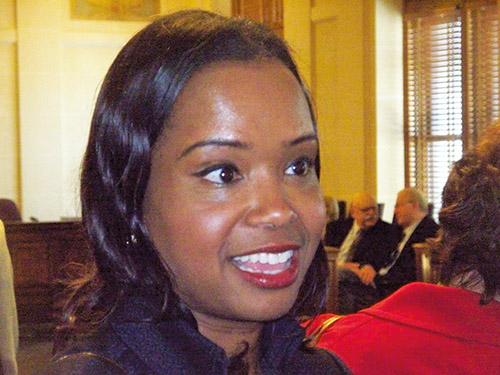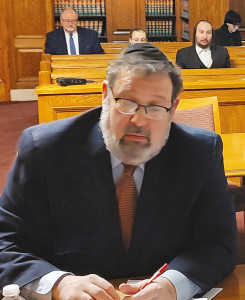
New York State Supreme Court Justice Christina Ryba has ruled in favor of yeshiva parents having control of their children’s education and learning curriculum.
There were three core rulings of the decision, and the impact will have to preserve and to protect the rights of parents and the schools, vis-a-vis the state education department, according to Avi Schick, the attorney for three organizations and five yeshivas led through the organization PEARLS, Parents for Educational and Religious Liberty in Schools.
Schick told The Jewish Link the three main points of victory were:

1. The court determined that parents and not the state have the right to direct the education of the children;
2. The court held that a yeshiva cannot be penalized or closed because the state believes it does not fulfill the substantial equivalency standard; and
3. The court held that a yeshiva is still a school even if the state determines it does not meet the substantial equivalency standard.
PEARLS sought a declaration that New York State Education Department’s recently passed regulations conflict with governing law and are therefore null and void. It also sought an injunction against the Board of Regents and NYSED from enforcing the new regulations, according to an interpretation of the court ruling by officials from Yaffed (Young Advocates for Fair Education), an organization opposing the yeshivas’ efforts for self-governing education policy.
The arguments that carried the day were twofold, Schick said. “We argued convincingly that the compulsory education law is directed at parents and not at schools. Therefore, the state education department does not have the right to impose all these threatened penalties of consequences on schools. It is a very significant victory for the yeshiva community in that it told the state the parents’ rights are superior to those of the state vis-a-vis the education of their children. Our educational institutions, which are our core institutions in our community, have the right to exist irrespective of the state’s view of their substantial equivalence.”
Schick called the state’s attempt to tighten educational requirements on nonpublic schools an impermissible “licensing scheme.”
“We argued throughout the litigation that fundamentally the compulsory education law is directed at parents and not at schools and the state can’t turn that on its head by creating this comprehensive scheme over schools and then saying they can either operate or not operate based on our assessment of their secular studies. The court accepted that,” Schick said. “We also argued, as the third cause of action in our complaint, that the new regulations effectively imposed an illegal licensing scheme over private schools.”
As for Judge Ryba, Schick had only praise for the jurist.
“We were confident that we got a fair hearing from a court that was willing to critically examine the state’s actions and motivations,” he said. “That’s all you can ask for and we were confident that if someone did come to this issue in a fair-minded way and was open to critically examining the state that we would get a good outcome. We did.”
Beatrice Weber, executive director of Yaffed, said, “While Judge Ryba disagreed with PEARLS’ central assertions, she also rolled back new state education department regulations that would have brought accountability to the Hasidic yeshivas that have been failing by design, refusing to teach their students the basics of English, science, math and social studies.”
An official with the New York State Education Department, who did not want to be named, issued an anonymous statement to The Jewish Link. The individual had a different view on the court ruling than Schick laid out.
“Last week’s significant decision by the Albany County Supreme Court validates the department’s commitment to improving the educational experience of all students,” according to a prepared statement from an unnamed NYSED official. “We have an obligation under the law to ensure all students receive an education that enables them to fulfill their potential and teaches them the skills and knowledge needed to contribute to society and participate in civic life. New York’s cultural, racial and religious diversity is our strength and should serve as a vehicle to learn from one another. We remain committed to ensuring students who attend school in settings consistent with their religious and cultural beliefs and values receive the education to which they are legally entitled.”
When asked by The Jewish Link to give his point of view about his courtroom opponents, Schick answered where the state Attorney General’s office and the NYSED faltered.
“Where they failed surely was in saying that what they’re proposing was not any change to what they did previously and surely it was by imposing these consequences and these requirements,” Schick said. “I suspect the state itself does not know what it is going to do [whether to appeal or not] but I can’t speak for the state.”
“The ruling was nuanced,” said Weber. “I remain optimistic that the state will appeal. We are both heartened by some aspects of Judge Ryba’s ruling and concerned about others. By removing some of the new safeguards and putting responsibility for children’s education in nonpublic schools on their parents, we worry that Hasidic yeshivas will continue to benefit from the extraordinary amount of funding available to them without fulfilling their obligations to the children.”
By Marc Gronich









